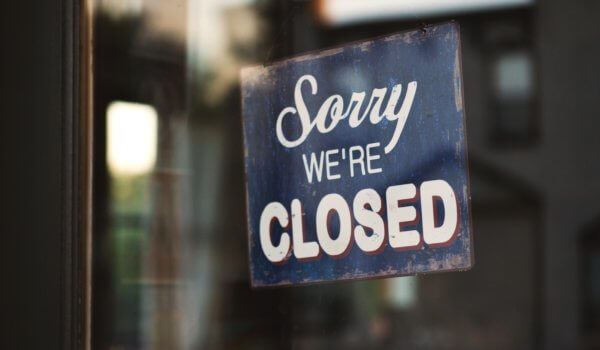
Over the years, local restaurants have remained staples of communities across the country. Houston, for instance, is known for its wide variety of local fare, with a whopping 10,000 restaurants that represent nearly 70 countries and American regions. While restaurants across the nation have long been a source of comfort for patrons, the novel coronavirus or COVID-19 has had and will likely continue to have a lasting impact on them due to the government-mandated closing dining rooms and unclear insurance policies.
While major cities like Houston, New York, and Los Angeles have been forced to close their dining rooms, they remain able to sell their food via takeout and delivery services. Despite this, many beloved eateries have already had to close their doors indefinitely due to COVID-19. The National Restaurant Association recently requested a $145 billion recovery fund from the federal government. This particular package proposes a series of tax cuts and credits and federally backed business-interruption insurance. Traditional business interruption insurance policies can be expensive and often exclude coverage for events like pandemics. At least restaurants with intact policies have begun to take legal action against their insurers.
Recently, Oceana Grill in New Orleans filed the first (and likely not last) bad faith insurance coverage lawsuit seeking a declaratory judgment that its insurer should cover COVID-19 related business interruption losses. Oceana Grill has an all risk property policy that covers civil authority-ordered shutdowns and does not exclude coverage for viruses or pandemics.
According to the lawsuit, the novel coronavirus, which causes COVID-19, “physically infects and stays on the surface of objects or materials, ‘fomites,’ for up to twenty-eight days, particularly in humid areas. It is clear that contamination of the insured premises by the coronavirus would be a direct physical loss needing remediation to clean the surfaces of the establishment.”
While the lawsuit is ongoing and as many eateries try to stay afloat during this uncertain time, it remains unclear if business interruption insurance will be cover business interruption losses due to the global pandemic – beyond its usual coverage of closures due to property damage from natural disasters.
Business Interruption Insurance and COVID-19
Business interruption insurance is typically utilized to replace income a business loses if it is unable to remain open for an extended period of time following a covered loss, like a natural disaster or weather event. For instance, if a tree falls and makes a large hole in the roof of an office building, this forces the office to shut down for restoration. Business interruption insurance coverage should provide at least a portion of the lost income until operations are able to resume normally again.
Business interruption insurance helps cover various operating expenses, such as:
- Revenue that would normally be made if the business were open.
- Mortgage, rent and lease payments for the location of the business.
- Loan payments that need to be made.
- Monthly or quarterly taxes.
- Payroll for employees.
- Relocation costs if the business has to temporarily change location because of the damage.
Business interruption insurance may also cover civil authority. This means that if a business has to close down because a government agency says so, the policy can help replace its lost income. Some policies also contain limited fungi, bacteria, and/or virus coverage. This can either exclude or limit losses caused by a virus. Many insurers use a form of this endorsement within the policy itself. Other policies require surcharge premiums for this coverage, but contain sub-limits.
The federal government agreed to a $2 trillion stimulus package. Though the bill includes $350 billion in small business loans, $250 billion in unemployment insurance benefits, and $500 billion in loans for distressed companies, only time will tell how it will affect the longevity of local restaurants.
Houston Commercial Litigation Attorneys
When it comes to a pandemic like COVID-19, many businesses are rightfully unsure of whether they can remain open. As local businesses continue to wade through the uncertainty of daily operations, having an experienced commercial litigation attorney by your side helps navigate your rights as a business owner and insurance policyholder. Contact the dedicated Houston insurance coverage lawyers at Feldman & Feldman today for more information on how we can help.
